
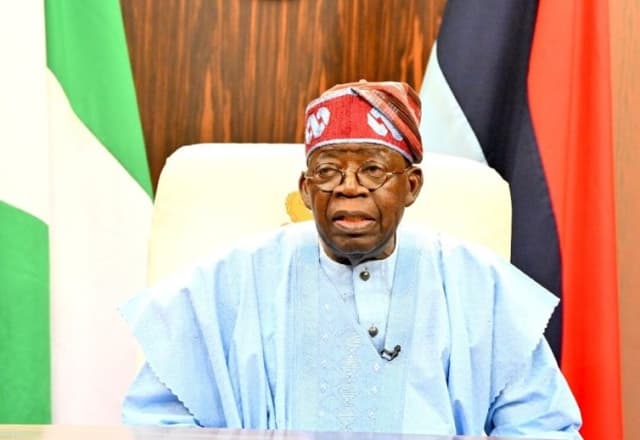

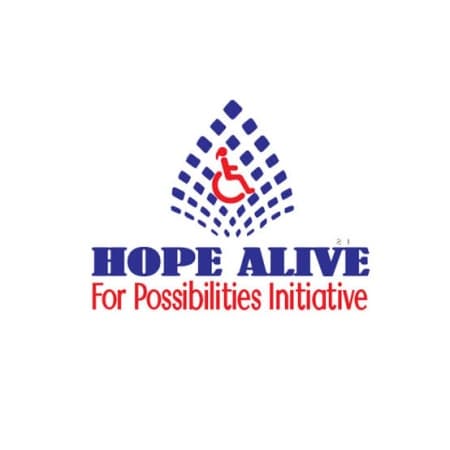



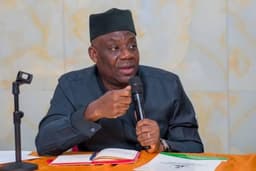





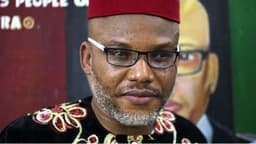



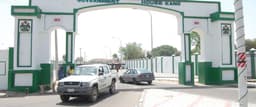

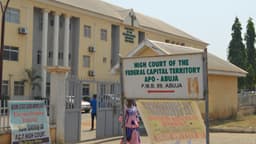
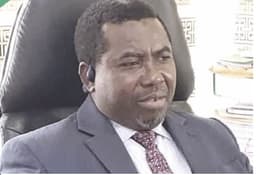
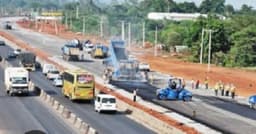


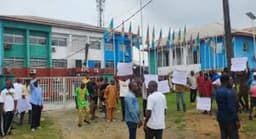
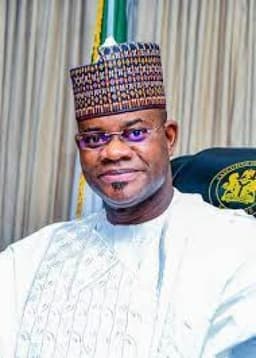

NEWS EXPRESS is Nigeria’s leading online newspaper. Published by Africa’s international award-winning journalist, Mr. Isaac Umunna, NEWS EXPRESS is Nigeria’s first truly professional online daily newspaper. It is published from Lagos, Nigeria’s economic and media hub, and has a provision for occasional special print editions. Thanks to our vast network of sources and dedicated team of professional journalists and contributors spread across Nigeria and overseas, NEWS EXPRESS has become synonymous with newsbreaks and exclusive stories from around the world.

Media Rights Agenda (MRA) today, Monday, September 29, 2025, launched a groundbreaking report highlighting the risks posed by an inadequate national response to environmental and climate challenges to ecosystems, public health, livelihoods, and national stability and called for a more robust implementation of frameworks for access to environmental information in Nigeria to mitigate their negative impact.
Warning that the cost of environmental and climate challenges in lost lives, displaced communities, and billions of dollars in damage to facilities and infrastructure is already too high, the organization stressed that without timely access to reliable environmental information, citizens and other members of the public cannot effectively participate in environmental governance, protect their rights, and proffer realistic solutions to address the climate and environmental crises.
In a statement issued in Lagos announcing the launch of the report to mark this year’s International Day for Universal Access to Information (IDUAI), MRA’s Programme Officer, Ms Ayomide Eweje, said: “Although Nigeria has a layered framework of constitutional guarantees, statutory provisions, regulatory instruments, and international obligations that can serve as a solid foundation for transparency and accountability in an effective national response, the country remains challenged by the lack of willingness on the part of public institutions and officials to disclose information as well as the poor capacity of citizens to demand such information and use it.”
According to her, “Critical to a national response framework is the right of citizens to access timely and reliable environmental information, without which their effective participation in environmental governance and the protection of their rights will not be possible. However, ensuring access to environmental information is not just about compliance with the law alone; it is also about empowering people to protect their health, livelihoods, and environment; hold duty bearers accountable; and build a future where development does not come at the expense of sustainability.”
Titled: “Access to Environmental Information and the Cost of Ignorance in Nigeria,” the report highlights Nigeria’s severe environmental challenges, including deforestation, flooding, desertification, oil pollution in the Niger Delta, poor disposal of plastic waste, and worsening air and water quality, which it identifies as problems that threaten ecosystems, public health, livelihoods, and national stability. It argues that access to environmental information is not a luxury but a necessity that is central to environmental democracy, public participation, and government accountability.
Examining Nigeria’s constitutional guarantees, statutory and regulatory frameworks and international obligations, the report identifies both opportunities and gaps in ensuring effective citizens’ access to environmental information and participation in environmental governance.
It examines laws such as the Freedom of Information Act, Climate Change Act, Environmental Impact Assessment Act, and regulations under the National Environmental Standards and Regulations Enforcement Agency (NESREA) among others, while also situating Nigeria’s commitments within the African Charter on Human and Peoples’ Rights, the Revised African Convention on the Conservation of Nature and Natural Resources (Maputo Convention), ECOWAS Environmental Policy, and global agreements such as the Paris Agreement and the UN Convention on Biological Diversity.
The report underscores the potential of digital technology, including Artificial Intelligence (AI), to improve environmental monitoring, early warning systems, and public access to real-time data. However, it warns that weak enforcement of laws, including lack of proactive disclosure of relevant information by public institutions and other actors, and the exclusion of marginalized communities, particularly rural women, from decision-making, threaten Nigeria’s ability to manage its environmental crisis.
Ms Eweje said: “The cost of environmental devastation in Nigeria is already staggering, running into billions of dollars annually in destruction of public and private property, facilities and infrastructure; the displacement of millions of citizens; and the loss of thousands of lives. Without meaningful and effective access to environmental information, citizens cannot protect their health and livelihoods, or hold decision-makers accountable. This report underscores the urgency of transparency and public participation in environmental governance.”
She therefore called on Federal and State Governments to ensure access to environmental information for citizens, particularly in the digital era, where data availability and transparency are crucial to accountability, saying that in order to achieve this, authorities must strengthen and enforce laws that mandate proactive disclosure of environmental information in user-friendly and digital formats; and create centralised, open-access data portals where citizens can easily obtain updates on issues such as pollution levels, deforestation rates, water quality, and climate risks.
Ms Eweje argued that it is equally important to address structural inequalities, including the challenges faced by rural communities and women that are often marginalised in both digital access and environmental decision-making, stressing that “Governments must, therefore, invest in broadband expansion, solar-powered digital hubs, and community-based ICT centres to bridge the rural digital divide.”
She called on civil society organizations and the media to engage in the monitoring and reporting of environmental hazards and collaborate with other stakeholders, including academic and research institutions, the private sector and technology companies to ensure that environmental information is not only available but also accessible, comprehensible, and actionable.